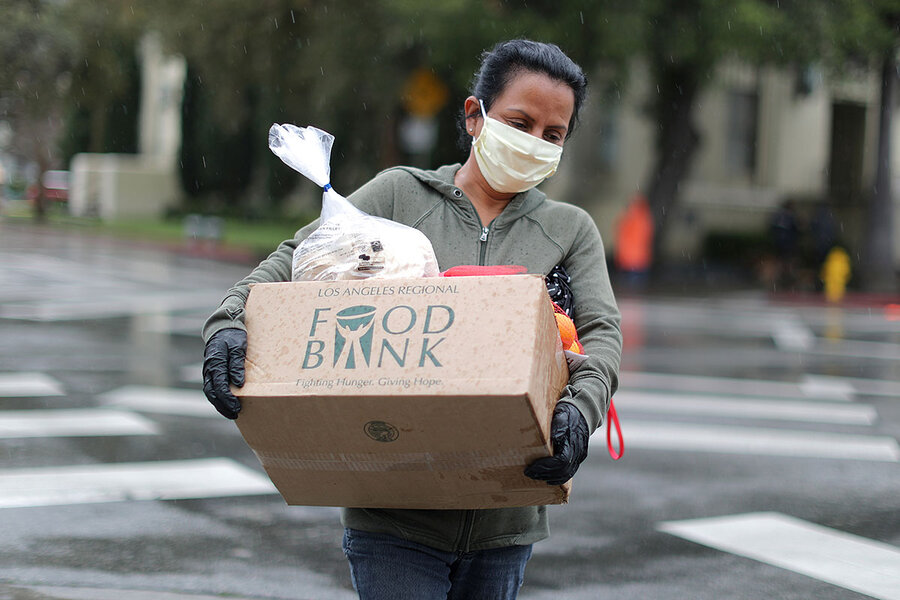
“How much do you weigh different parts of our total well-being against each other?” As all 50 states begin reopening this week, that’s a question leaders are weighing – one that forces moral questions about American values.
Michael Flood feels for America’s government leaders. They have difficult choices to make in deciding how quickly to reopen economies. As president of the Los Angeles Regional Food Bank, he’s seeing both sides of human hurt in the coronavirus pandemic.
On one hand, a lockdown to prevent spread of the virus has caused great economic and mental stress, illustrated in the skyrocketing demand for food pantries in Los Angeles County, the most populous county in the nation. The food bank’s distribution has surged 80% since the beginning of March – nearly twice the increase during the Great Recession. Several times a week, upward of a thousand cars line up at parking lots for drive-through groceries.
At the same time, two people who worked at the food bank’s partners have died from the virus. Los Angeles County is the epicenter for the outbreak in California, with about 2,000 deaths so far. The disease “feels like a personal threat to all of us,” explains Mr. Flood.
“We’re seeing on both ends, people who have died from COVID and this huge impact. I really struggle with this. It’s so hard to figure out.”
It is no wonder that Mr. Flood is wrestling with trade-offs in the reopening. Much of the country is entering a “gray space,” as Los Angeles Mayor Eric Garcetti puts it. That space lies between flinging open the doors and cautionary measures to prevent a virus resurgence. It includes ethical dimensions as governors and local officials make life-altering choices, while those unhappy with the decisions push back in the courts and on the street. Americans need to have a national conversation about these choices and their consequences, say social scientists. But it’s a tough subject.











